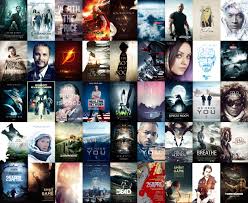Media

Course Title: "Decoding the Narrative: Analyzing and Interpreting 21st Century Films"
Course Description:
In this course, students will delve into the world of 21st century cinema, exploring a diverse range of films from various genres, cultures, and perspectives. Through in-depth analysis and interpretation, students will develop a deeper understanding of the key elements that comprise a story, including character development, plot structure, theme, and cinematic language. By examining films from the 21st century, students will gain insight into the ways in which contemporary filmmakers reflect, shape, and challenge societal attitudes, cultural norms, and individual experiences.
Course Objectives:
- Analyze and interpret 21st century films from various genres, including drama, comedy, sci-fi, and horror
- Identify and explain the core elements of a story, including character development, plot structure, theme, and cinematic language
- Develop critical thinking and close reading skills to evaluate the ways in which filmmakers use narrative techniques to convey meaning and emotion
- Explore the cultural, social, and historical contexts that shape the production and reception of films
- Cultivate effective communication and collaboration skills through class discussions, group analyses, and written assignments
Course Outline:
- Introduction to film analysis and interpretation
- Exploring character development: motivations, arcs, and relationships
- Unpacking plot structure: narrative patterns, conflict, and resolution
- Examining theme: social commentary, symbolism, and metaphor
- Analyzing cinematic language: cinematography, editing, and sound design
- Case studies of 21st century films, including:
- Blockbuster franchises (e.g. Marvel, Star Wars)
- Independent and art-house cinema (e.g. Wes Anderson, Sofia Coppola)
- Global cinema (e.g. Korean, Iranian, Mexican films)
- Films that challenge societal norms and stereotypes (e.g. representation, diversity, and inclusion)
Assessment:
- Class participation and engagement (20%)
- Weekly analysis and interpretation assignments (40%)
- Mid-term and final exams (20%)
- Final research paper or group project (20%)
Prerequisites:
- None, although prior experience with film analysis or literary criticism may be beneficial
Target Audience:
- Undergraduate students interested in film studies, literature, communications, or related fields
- Anyone interested in developing critical thinking and analytical skills through the lens of contemporary cinema
By the end of this course, students will have developed a deeper understanding of the art of storytelling, the language of cinema, and the ways in which 21st century films reflect and shape our understanding of the world around us.
- Teacher: JULIUS JAY JR B. DASKEO